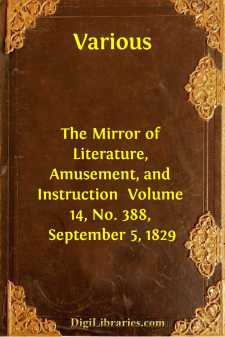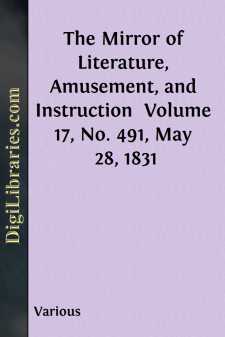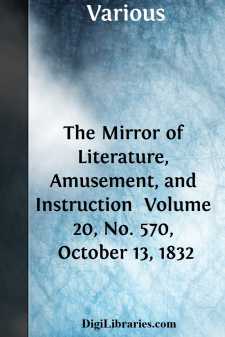Categories
- Antiques & Collectibles 13
- Architecture 36
- Art 48
- Bibles 22
- Biography & Autobiography 815
- Body, Mind & Spirit 144
- Business & Economics 28
- Children's Books 18
- Children's Fiction 14
- Computers 4
- Cooking 94
- Crafts & Hobbies 4
- Drama 346
- Education 58
- Family & Relationships 59
- Fiction 11834
- Games 19
- Gardening 17
- Health & Fitness 34
- History 1378
- House & Home 1
- Humor 147
- Juvenile Fiction 1873
- Juvenile Nonfiction 202
- Language Arts & Disciplines 89
- Law 16
- Literary Collections 686
- Literary Criticism 179
- Mathematics 13
- Medical 41
- Music 40
- Nature 179
- Non-Classifiable 1768
- Performing Arts 7
- Periodicals 1453
- Philosophy 65
- Photography 2
- Poetry 896
- Political Science 203
- Psychology 44
- Reference 154
- Religion 515
- Science 126
- Self-Help 85
- Social Science 83
- Sports & Recreation 34
- Study Aids 3
- Technology & Engineering 59
- Transportation 23
- Travel 463
- True Crime 29
Our website is made possible by displaying online advertisements to our visitors.
Please consider supporting us by disabling your ad blocker.
Come Out of the Kitchen! A Romance
Description:
Excerpt
THE window of Randolph Reed's office was almost completely covered by magnificent gold block lettering. This to any one who had time and ability to read it—and the former was more common in the community than the latter—conveyed the information that Reed dealt in every kind of real estate, from country palaces to city flats. The last item was put in more for the sake of symmetry than accuracy, for the small Southern town contained nothing approaching an apartment house.
From behind this pattern of gold, Reed peered eagerly one autumn afternoon, chewing the end of a frayed cigar, and listening for the sound of a motor. He was a stout young man, of an amiable though unreadable countenance, but like many people of a heavy build, he was capable of extreme quickness of movement. This was never more clearly shown than when, about four o'clock, the wished for sound actually reached his ears. A motor was approaching.
With a bound Reed left the window, and, seated at his desk, presented in the twinkling of an eye the appearance of a young American business man, calm and efficient, on an afternoon of unusual business pressure. He laid papers in piles, put them in clips and took them out, snapped rubber bands about them with frenzied haste, and finally seizing a pen, he began to indite those well-known and thrilling words: "Dear Sir: Yours of the 15th instant received and contents—" when the motor drew up before his door.
It was an English car; all green and nickel; it moved like an expert skater on perfect ice. As it stopped, the chauffeur dropped from his place beside the driver. The driver himself, removing his glasses, sprang from the car and up the office steps, slapping the pockets of his coat as he did so in a search which soon appeared to be for cigarettes and matches.
"Sorry to be late," he said.
Reed, who had looked up as one who did not at once remember, in his vast preoccupation, either his visitor or his business, now seemed to recall everything. He waved the newcomer to a chair, with a splendid gesture.
"Doubtless the roads," he began.
"Roads!" said the other. "Mud-holes. No, we left Washington later than I intended. Well, have you got the house for me?"
Reed offered his client a cigar.
"No, thank you, prefer my cigarette if you don't mind."
Reed did not mind in the least. The real estate business in Vestalia was never brilliant, and several weeks' profits might easily have been expended in one friendly smoke.
His client was a man under thirty, of a type that used to be considered typically American—that is to say, Anglo-Saxon, modified by a century or so of New England climate and conscience. His ancestors had been sailors, perhaps, and years of exposure had tanned their skins and left their eyes as blue as ever. His movements had the gentleness characteristic of men who are much with horses, and though he was active and rather lightly built, he never was sudden or jerky in any gesture. Something of this same quietness might be detected in his mental attitude. People sometimes thought him hesitating or undecided on questions about which his mind was irrevocably made up. He took a certain friendly interest in life as a whole, and would listen with such patience to an expression of opinion that the expresser of it was often surprised to find the opinion had had no weight with him, whatsoever.
He stood now, listening with the politest attention to Reed's somewhat flowery description of the charms of the Revelly house—charms which Crane himself had examined in the minutest detail....












